It is hard to imagine fruit and vegetable shelves without white, or even chestnut, mushrooms. So, the time is ripe to introduce their more exotic cousins. In the Netherlands, exotic specialist Oakfield is working hard at that. Their dream? To see every person in the Netherlands enjoying a meal that includes locally-grown exotic mushrooms.
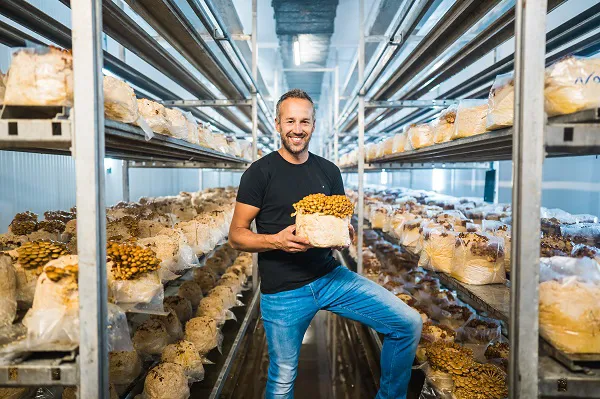
Maurice Koppen
"Mushrooms truly fit into all the food trends. From local to healthy, meat substitutes, convenience, sustainability, you name it. And, they're delicious to boot," begins Oakfield director Lisa van Veen. The challenge is that most consumers are not yet familiar with exotic mushrooms and their possibilities.
Oakfield is trying its utmost to increase that awareness. They succeeded, for example, in stimulating demand for royal oyster mushrooms. That was via not only a Dutch newspaper's culinary section. But also thanks to vloggers, bloggers, and sharing online recipes on culinary channels.

Lisa van Veen
Oakfield has been regularly supplying this exotic mushroom variety to the Dutch supermarket chain Albert Heijn since November 2020. At another chain, Jumbo, the king oyster mushroom appeared on shelves this year, in late May. That is good news - more availability will further stimulate demand.
With a turnover of €10 million and 100 FTE, Oakfield is among the ten largest mushroom growers in the Netherlands. It grows nine different kinds of mushrooms: white, chestnut, royal oyster, shiitake, nameko (bundle), oyster (gray, pink, yellow), white or brown beech, maitake, and lion's mane.
The farm is huge, with no less than 44 cultivation rooms. So, they can keep specializing and scaling their exotic mushroom cultivation up. These mushrooms are not grown on beds like regular mushrooms but in bags of substrate.
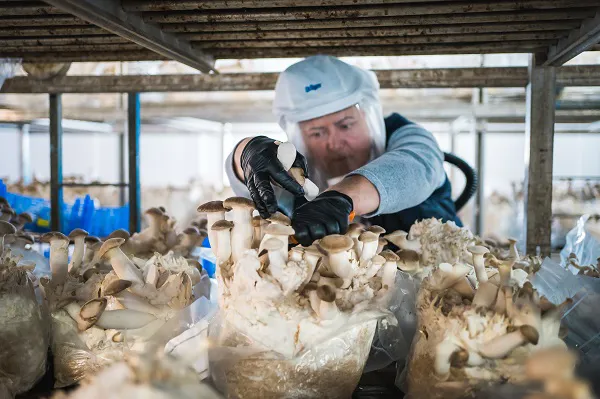
Harvesting
Oakfield has been in Dutch hands since 2017. Directors Maurice Koppen and Lisa van Veen did an about-turn. They no longer wanted to be part of the rat race for the cheapest, internationally-traded mushrooms. They wanted to move towards a wide range of high-quality mushrooms for the Dutch market. That has room for exotic mushrooms in particular, given the market developments.
"In countries like China, Korea, and Japan, people have always eaten and grown many kinds of exotic mushrooms. Exotic mushroom supplies have also been on the rise for some time in several European countries. These are places such as the UK, Germany, and France. The better-known exotic varieties like oyster and shiitake mushrooms are doing better and better in retail. That is both in the Netherlands and abroad," says Lisa.
Oakfield contributes to this through innovation and concept development. "You can only serve the market properly if you think from consumers' perspectives. People want convenience, fresh, local products with no waste. That, too, is why we supply products like risotto and pasta mushroom mixes."
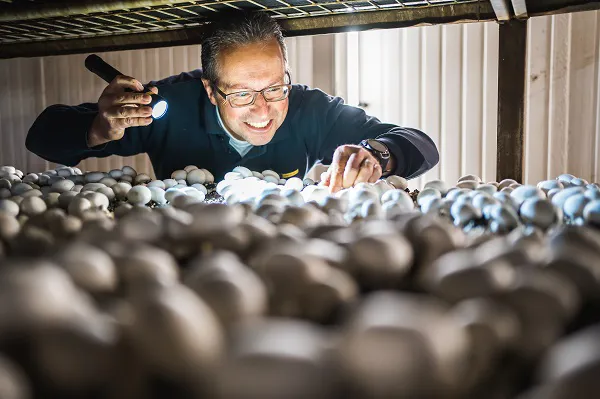
Inspection
But considering consumers is not the only important thing. The chain is as short as possible already. Yet, you need partners who can give shoppers a high-quality product. Oakfield developed from a farming-oriented company into a hybrid one. It establishes close ties with the chain.
"We believe in partnerships. We work closely and long-term with the right partners that share our vision. That's the only way we can quickly adapt and respond to the market," says Maurice. He and Lisa are sure of the mushroom market's bright future. It is, after all, in sync with food trends and social developments.
Cultivation-wise, mushrooms fit in with the demand for sustainable, locally-grown products. They also form part of a circular economy. Mushrooms like shiitake and oyster mushrooms may be exotic. They are, nevertheless, easy to grow in the Netherlands.
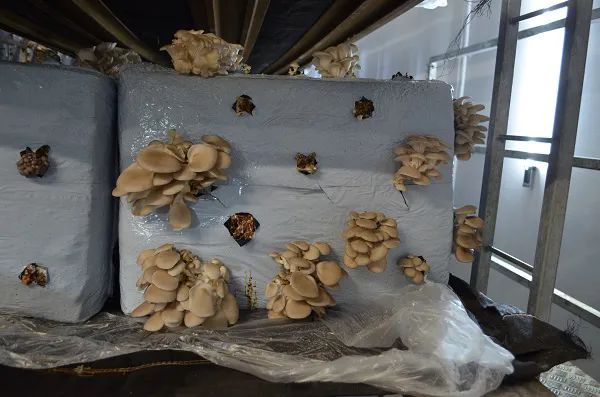
That is done in substrate-filled bags on racks. This vertical cultivation method takes up relatively little space and needs little water. Also, exotic mushrooms have a low disease pressure and by working hygienically, you need no pesticides.
The substrate in which mushrooms grow is made from byproducts, mostly sawdust, straw, and manure. This kind of farming thus makes an important contribution to the circular economy. Oakfield wants to optimize this even further. They want to upgrade the company's residual streams. They want to process king oyster mushroom stalks into burgers or 'pulled' mushroom products.
But, for the company, there is something even more important than a low carbon footprint. People must embrace exotic mushrooms for their flavor, health benefits, and variety of uses. Mushrooms are healthy. They are low-calorie and can lower your cholesterol. They also contain important vitamins and minerals.
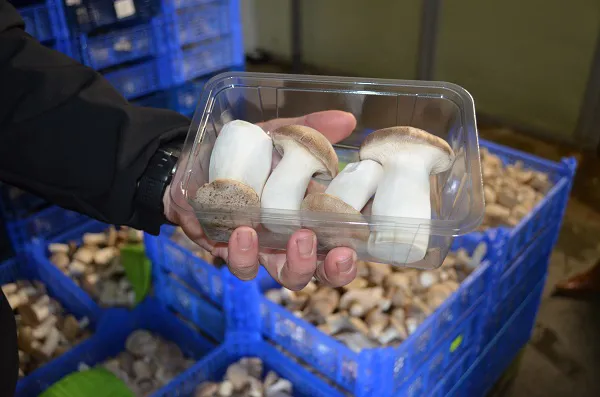
Mushrooms are rich in plant proteins too. So they can be an alternative to meat. That is especially true for the varieties with a firmer bite like the king oyster mushroom. According to Dutch trend watcher Anneke Ammerlaan, mushrooms will become a meal staple like meat. That's due to the growing number of flexitarians, vegetarians, and vegans.
Mushrooms fit perfectly in different cuisines, from Italian to Asian. Chefs are doing new things with mushrooms too. That, in turn, inspires consumers. "People are discovering that you can use mushrooms to add flavor and texture to (meatless) dishes. That creates endless possibilities for us, as producers," Lisa concludes.
Oakfield  Lochtstraat 1
Lochtstraat 1
6039 RV Stramproy
0495 564113
info@oakfield.nl
www.oakfield.nl
